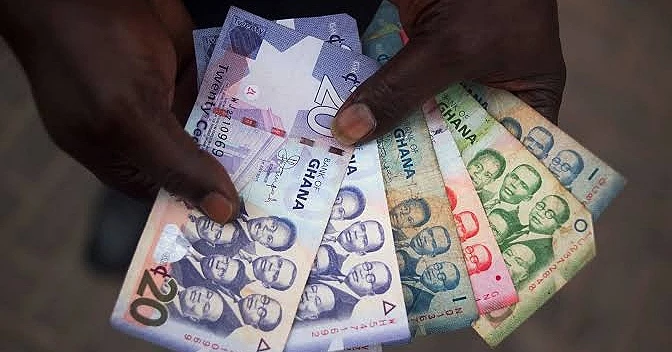Ghana’s Poor Are The Ones Who Suffer Most From Corruption: History Offers Some Ideas About Fighting Back
It didn’t take long for the new government of John Mahama in Ghana to find a dramatic way to highlight its commitment to combating corruption. On 12 February 2025 his special prosecutor declared the previous finance minister a “wanted fugitive” for going abroad to evade questioning for suspected financial irregularities, before later agreeing to schedule a return.
In that one move, the government of Mahama’s National Democratic Congress sounded a couple of familiar notes from past campaigns. First, that the widespread graft so many Ghanaians bemoan was largely the fault of the other party, in this case the New Patriotic Party, voted out the previous December. And second, that dishonesty and misconduct are most damaging when they involve high public officials.
The reality of corruption lived by ordinary Ghanaians is far more complicated than that. Across the past 30 years of electoral democracy, both parties have been tainted by scandal and malfeasance. And over the country’s much longer history, as I detail in a new book, Ghanaians have complained about a wide range of misdeeds by figures in both the public and private realms, in positions high and low.
Ordinary people have often challenged abuses, misdeeds and outright theft by the wealthy and powerful. They did so well before the territory’s indigenous societies were subjugated by Britain and incorporated into its Gold Coast colony.
Based on my research into corruption over Ghana’s centuries-long history, it’s clear to me that the effectiveness of any new initiatives depends as much on action from below as from above. Poor people feel the effects of corruption and exploitation more acutely than the better off. And if they are organised they can push the authorities to be more active in rooting out fraud and graft.
Pre-colonial anticorruption actions
The strongest precolonial society was Asante, an empire that ruled over a wide area of what is today Ghana. At times, the excesses and injustices of Asante’s monarchs provoked turmoil, fuelled by anger among elites and ordinary people alike.
One, Kofi Kakari, was dethroned in 1874 after violating established norms by removing gold ornaments from a sacred mausoleum. His successor, Mensa Bonsu, prompted a popular insurgency and was finally overthrown in 1883 by an alliance of junior aristocrats and commoners.
Meanwhile, the coastal areas populated by Fante developed a more institutionalised method of ensuring chiefly accountability. Commoner-led defence groups, known locally as asafo, which performed a range of civic functions, could depose unpopular chiefs. In some removal ceremonies asafo members seized a chief and bumped his buttocks on the ground three times.
According to Ghanaian social anthropologist Maxwell Owusu, asafo companies
had a sacred duty to safeguard the interests of the wider local community against rulers or leaders who misused or abused their power.
The asafo remained active into the early colonial period. In the 1920s, however, the colonial administration curtailed their powers, to protect chiefs willing to implement colonial orders.
Echoes of asafo could still be heard many decades later. Following a succession of postcolonial administrations, Ghana erupted in widespread mobilisations against corruption and injustice. The popular outpourings of 1979 and the early 1980s were set off by two lower-rank coups led by Flight Lieutenant Jerry Rawlings. Recalling past traditions of resistance, protesters sang asafo war songs, beat drums, and employed other popular rituals.
Many of those activists regarded corruption not as a failing of individuals in high office, but as a problem rooted in Ghana’s class-divided society. As one leading figure of the new People’s Defence Committees put it in 1982:
Corruption … is the product of a social system and enriches a minority of the people whilst having the opposite effect on the majority.
Soon the Rawlings government moved towards accommodation with both western financial circles and domestic elites. The youth-led defence committees were purged and eventually abolished.
The multiparty era
Radical social perspectives persisted into the era of multiparty electoral democracy, though not in the two mainstream parties. Both say they are opposed to corruption. But according to critics like political scientist Kwame Ninsin, they in effect take turns at the helm to “control the state for private accumulation”.
Most official anticorruption strategies tend to ignore political contention and social distinctions. And the standard international corruption ratings of Transparency International largely rely on external financial and investor assessments.
Afrobarometer research surveys provide a more comprehensive view. In 2019, for example, Afrobarometer interviewers asked Ghanaians whether corruption had worsened over the previous year. Some 67% of those living in greater poverty said it had, while only 47% of the better off thought so. And although poor respondents also cited misdeeds by high officials, they often stressed more tangible aspects in their daily lives, such as having to pay bribes to local police or to obtain health or education services.
Some corruption scholars see benefits to “frying big fish”, to publicly demonstrate their seriousness. Ghanaian governments have a long history of doing that, however, and face an increasingly sceptical public. To be more credible, anticorruption campaigns cannot target only the opposing party or just those at the heights of power.
Strengths and weaknesses
Ghana now has a range of laws and institutions to combat graft, fraud and other injustices. Some focus on exposure and punishment, both through the regular courts and through institutions such as the Commission on Human Rights and Administrative Justice, which annually hears thousands of citizens’ complaints.
Some official actions stress prevention. High office-holders have to declare their families’ assets, to make it harder to hide illegal wealth. Mahama made his own declaration of assets public, the first president ever to do so.
Government anticorruption measures have improved over the years. But they still suffer from bureaucratic inertia and limited commitment. That’s why many activists argue against relying solely on politicians.
The effectiveness of any new initiatives by Mahama or other officials depends as much on action from below as from above. After all, it’s ordinary Ghanaians who know where corruption pinches them the most.







